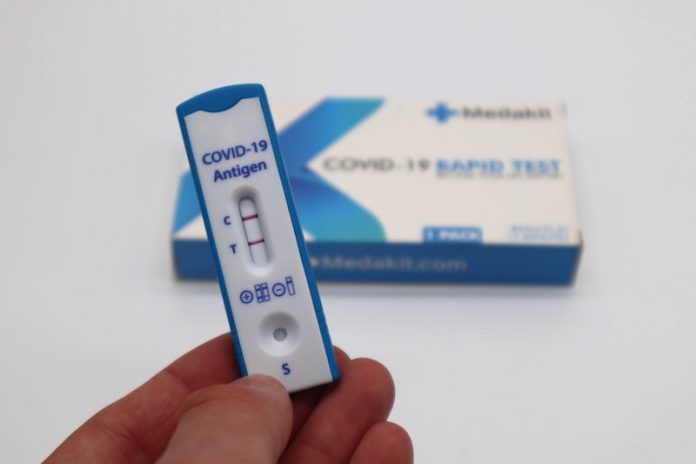
In a new study from the University of Toronto, researchers found the overall rate of false-positive results using rapid antigen test screens for COVID-19 is very low.
In the study, the team examined the incidence of false-positive test results in a large sample of rapid antigen tests used to serially screen asymptomatic employees at 537 workplaces throughout Canada.
The analysis included 903,408 rapid antigen tests (Jan. 11 to Oct. 13, 2021) conducted by employees through at-home or on-site screening programs.
The researchers identified 1,322 positive results (0.15%), of which 1,103 had polymerase chain reaction (PCR) test information.
False-positive results were seen for 0.05% of screens overall and 42% of positive tests with corresponding PCR information. Roughly two-thirds of screens had a trackable lot number.
60%of false-positive results occurred in two workplaces 675 km apart run by different companies between Sept. 25 and Oct. 8, 2021, and all of these false-positive test results were drawn from a single batch of the Abbott Panbio COVID-19 Ag Rapid Test Device.
The team says the results show the importance of having a comprehensive data system to quickly identify potential issues.
If you care about Covid, please read studies about weight loss that could help prevent severe COVID-19, and what to know about your treatment options for COVID-19.
For more information about health, please see recent studies about why are some COVID cases more severe than others, and results showing this drug could help treat lung damage in COVID-19.
The study is published in the Journal of the American Medical Association. One author of the study is Joshua S. Gans, Ph.D.
Copyright © 2022 Knowridge Science Report. All rights reserved.



